All Pensacola Addiction Treatment Centers
-
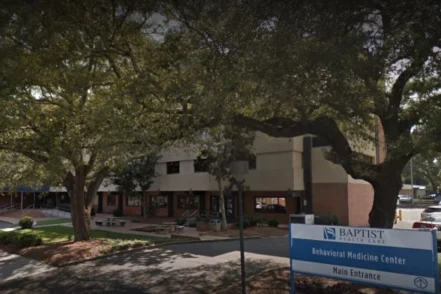
Baptist Behavioral Medicine Center
1101 West Moreno St
Pensacola, Florida 32501Treatment Programs
- Alcohol Rehab
- Dual Diagnosis
- Opioid Addiction
- +4
Insurance
- Self-pay options
- Private insurance
-
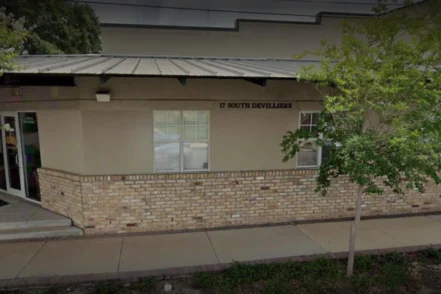
Childrens Home Society Western Division
17 South De Villiers Street
Pensacola, Florida 32502Treatment Programs
- Dual Diagnosis
- Young Adult Rehab
Insurance
- Medicaid
- Self-pay options
- +2
-
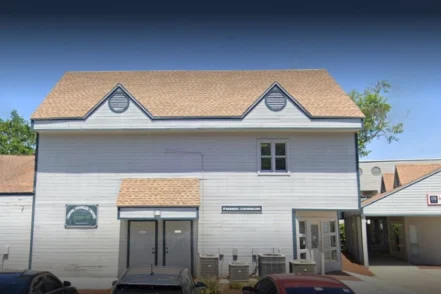
Cordova Counseling Center
4400 Bayou Boulevard, Suite 8-D
Pensacola, Florida 32503Treatment Programs
- Alcohol Rehab
- Dual Diagnosis
- Opioid Addiction
- +7
Insurance
- Private insurance
- Self-pay options
- +3
-
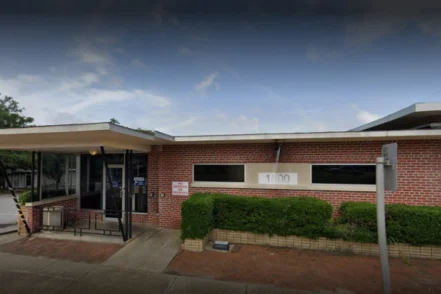
Lakeview Center MAT Clinic Pensacola
1800 North Palafox Street
Pensacola, Florida 32501Treatment Programs
- Opioid Addiction
- Drug Rehab
- Adult Program
- +3
Insurance
- Medicaid
- Private insurance
- +1
-
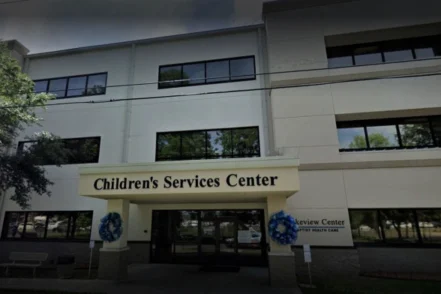
Lakeview Center Pensacola
1302 West Avery St., Building D
Pensacola, Florida 32501Treatment Programs
- Alcohol Rehab
- Dual Diagnosis
- Opioid Addiction
- +4
Insurance
- Self-pay options
- Private insurance
-
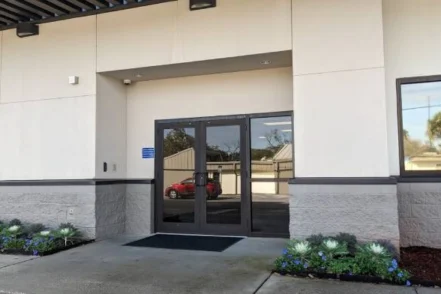
Lakeview Center The Friary Pensacola
1201 West Lakeview Avenue
Pensacola, Florida 32501Treatment Programs
- Dual Diagnosis
- Drug Rehab
- Adult Program
-
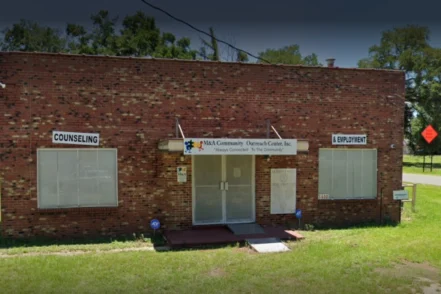
M and A Community Outreach
1400 North P Street
Pensacola, Florida 32505Treatment Programs
- Alcohol Rehab
- Dual Diagnosis
- Opioid Addiction
- +7
Insurance
- Self-pay options
-
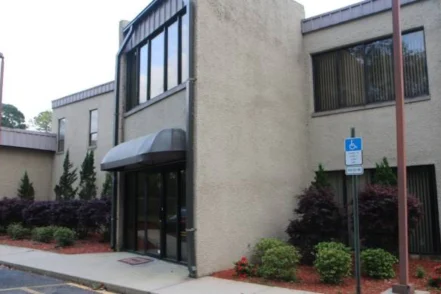
Pensacola Womens Rehab
7215 Pine Forest Road
Pensacola, Florida 32526Treatment Programs
- Alcohol Rehab
- Drug Rehab
- Womens Rehab
-
Baptist Hospital Behavioral Medicine Center
1000 West Moreno Street
Pensacola, Florida 32501Treatment Programs
- Dual Diagnosis
- Adult Program
- Senior Rehab
- +1
Insurance
- Medicaid
- Private insurance
- +4
-
Bradford Health Services Pensacola
8333 North Davis Highway, Suite LLA
Pensacola, Florida 32514Treatment Programs
- Alcohol Rehab
- Dual Diagnosis
- Opioid Addiction
- +4
Insurance
- Private insurance
- Self-pay options
- +1
-
Lakeview Center Fact Team
1900 North Palafox Street
Pensacola, Florida 32501Treatment Programs
- Dual Diagnosis
- Adult Program
- Senior Rehab
- +1
-
Lakeview Center Main Campus
1221 West Lakeview Avenue
Pensacola, Florida 32501Treatment Programs
- Drug Rehab
- Dual Diagnosis
- Opioid Addiction
- +2
Insurance
- Self-pay options
-
Lakeview Center Stabilization
1304 West Avery Street, Building S
Pensacola, Florida 32501Treatment Programs
- Alcohol Rehab
- Dual Diagnosis
- Opioid Addiction
- +4
Insurance
- Private insurance
- Self-pay options
- +2
-
Many Nations Inc
6395 North Blue Angel Parkway
Pensacola, Florida 32526Treatment Programs
- Alcohol Rehab
-
Naval Hospital Substance Abuse
6000 West Highway 98
Pensacola, Florida 32512Treatment Programs
- Drug Rehab
Other Nearby Cities
Top Drug Rehab Centers in Florida
-
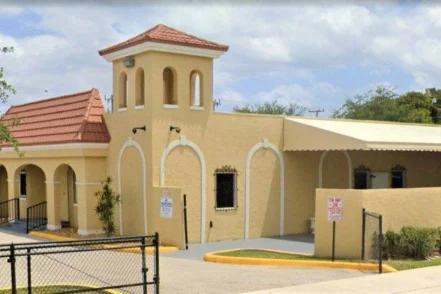 Florida
FloridaAmbrosia Treatment Center West Palm Beach
222 Picadilly Street West Palm Beach, Florida 33407
Treatment Programs
- Alcohol Rehab
- Dual Diagnosis
- Opioid Addiction
- +5
-
 Florida
FloridaEvolutions Treatment Center Miami Fort Lauderdale
2900W Cypress Creek Road, Suite 2 Fort Lauderdale, Florida 33309
Treatment Programs
- Alcohol Rehab
- Dual Diagnosis
- Opioid Addiction
- +5
-
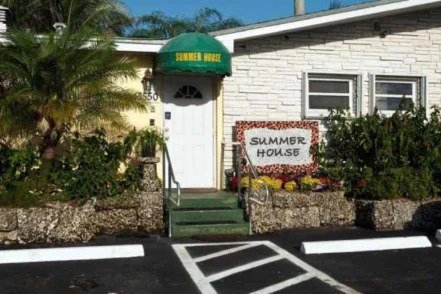 Florida
FloridaSummer House Detox Center
13550 Memorial Highway Miami, Florida 33161
Treatment Programs
- Alcohol Rehab
- Dual Diagnosis
- Opioid Addiction
- +5
-
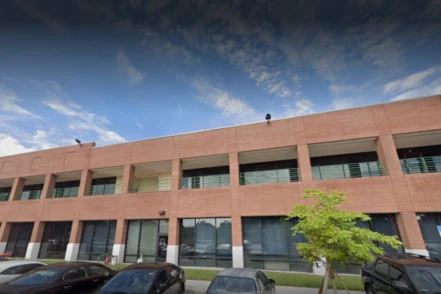 Florida
FloridaCompassion Behavioral Health
1 Oakwood Blvd, Suite 265 Hollywood, Florida 33020
Treatment Programs
- Alcohol Rehab
- Dual Diagnosis
- Opioid Addiction
- +4
-
 Florida
FloridaUnited Recovery Project Hollywood
5900 Johnson Street Hollywood, Florida 33021
Treatment Programs
- Alcohol Rehab
- Dual Diagnosis
- Opioid Addiction
- +4
-
 Florida
FloridaLakeview Health
1900 Corporate Square Blvd Jacksonville, Florida 32216
Treatment Programs
- Alcohol Rehab
- Dual Diagnosis
- Opioid Addiction
- +3
-
 Florida
FloridaAdaptive Center Coral Way
2828 Coral Way, Suite 103 Miami, Florida 33145
Treatment Programs
- Alcohol Rehab
- Dual Diagnosis
- Opioid Addiction
- +5
-
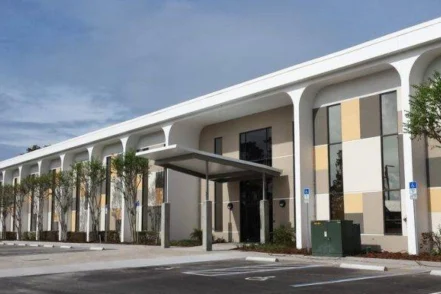 Florida
FloridaOrlando Recovery Center Drug and Alcohol Rehab
6000 Lake Ellenor Drive Orlando, Florida 32809
Treatment Programs
- Alcohol Rehab
- Dual Diagnosis
- Opioid Addiction
- +4
-
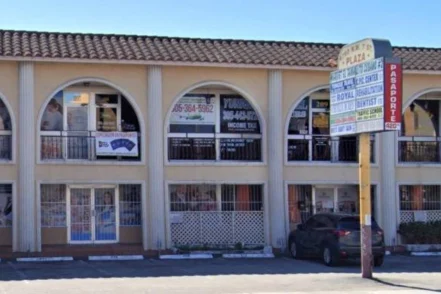 Florida
FloridaComprehensive Psychiatric Center 7th Street
4790 Northwest 7th Street, Suite 102 Miami, Florida 33126
Treatment Programs
- Alcohol Rehab
- Opioid Addiction
- Drug Rehab
- +4
-
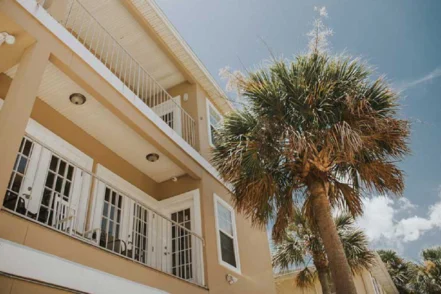 Florida
FloridaBeaches Recovery
390 16th Ave South Jacksonville Beach, Florida 32250
Treatment Programs
- Alcohol Rehab
- Dual Diagnosis
- Opioid Addiction
- +5
-
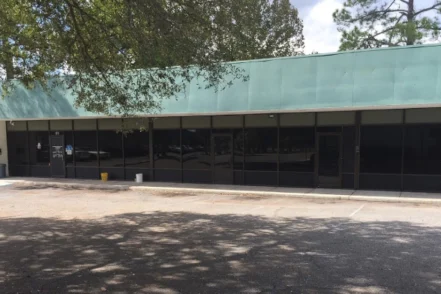 Florida
FloridaNew Season Duval County Treatment Center
590 Ellis Rd, Building 4 Jacksonville, Florida 32254
Treatment Programs
- Alcohol Rehab
- Opioid Addiction
- Drug Rehab
- +4
-
 Florida
FloridaAspire Health Partners Addictions Receiving Facility ARF
712 West Gore Street Orlando, Florida 32805
Treatment Programs
- Alcohol Rehab
- Dual Diagnosis
- Opioid Addiction
- +7
-
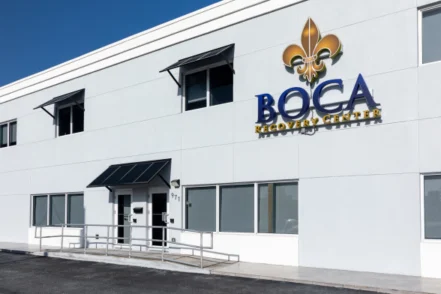 Florida
FloridaBoca Recovery Center Powerline Road
21301 Powerline Road, Suite 311 Boca Raton, Florida 33433
Treatment Programs
- Alcohol Rehab
- Dual Diagnosis
- Opioid Addiction
- +4
-
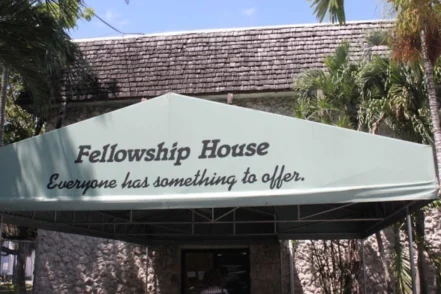 Florida
FloridaFellowship House Miami
5711 South Dixie Highway Miami, Florida 33143
Treatment Programs
- Alcohol Rehab
- Dual Diagnosis
- Opioid Addiction
- +4
-
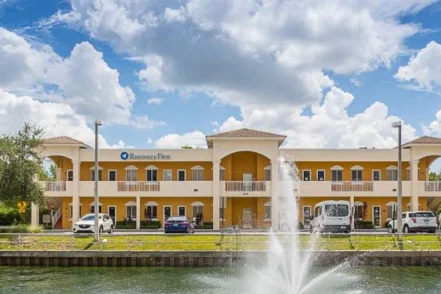 Florida
FloridaRecovery First Treatment Center Hollywood
4110 Davie Road Extension Hollywood, Florida 33024
Treatment Programs
- Alcohol Rehab
- Drug Rehab
- +-1
Find Nearby Drug Rehabs in Florida
- Pahokee
- Palatka
- Palm Bay
- Palm Beach
- Palm Beach Gardens
- Palm Beach Shores
- Palm City
- Palm Coast
- Palm Harbor
- Palm Springs
- Palmetto
- Panama City
- Panama City Beach
- Pembroke Pines
- Pensacola
- Perry
- Pinellas Park
- Plant City
- Plantation
- Pompano Beach
- Port Charlotte
- Port Orange
- Port Richey
- Port St. Lucie
- Punta Gorda
